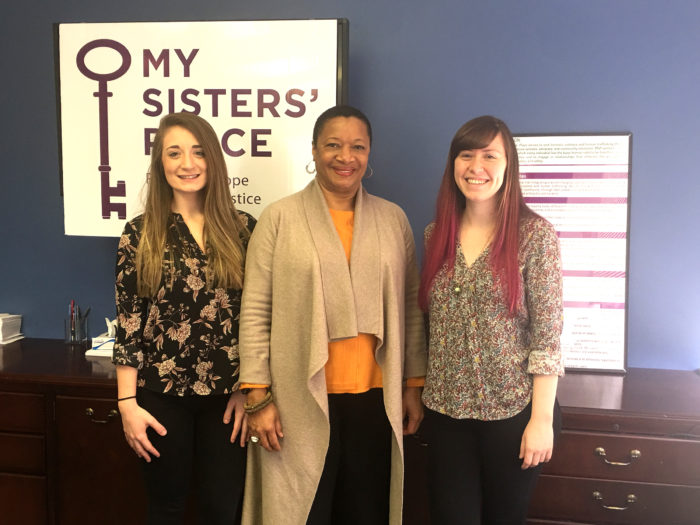
Photo by Donna Mueller
It goes without saying, the holiday season can be a very stressful time. For some, the psychological trauma of world events may be deeply felt. But the reasons can also be more mundane. Between all the commitments. overbooking and family drama, anyone can feel overwhelmed. Add in the daily stressors already in our lives and some may find the need to reach out for some professional guidance. This is where Repose can help.
The Repose practice started early in the pandemic as a remote option for those seeking therapy. Now with an office space in Pleasantville, Repose provides clients with a holistic approach to therapy, honoring the connection between mind, body, and spirit. Its mission is to help people gain clarity, heal, and overcome challenges so that they may live with greater ease. As their website states, “Although we cannot cure our wounds, we can heal them.” Repose is here to help those who seek it and in a gentle and inclusive way.
One of their therapists Megan Kordenbrock, a Licensed Master Social Worker (LMSW), explains here how therapy can help and how to begin the process and wellness in general–whether it’s during this busy end-of-year season, or whenever the time feels right to you.
Megan joined the Repose team in July 2023 and has been a LMSW since 2011. She works with clients remotely as well as in the Pleasantville office, and having the option of either is very helpful for many clients. “People enjoy the flexibility of therapy online but also enjoy using the office in person. Being together in the room is awesome. However, for some people, it’s hard to get out of bed, but they can still go to therapy, and can do trauma-processing work online as well.”
Repose is always adapting to people’s needs whether they prefer remote or in-person sessions. Megan’s practice has mostly been in interpersonal violence work–domestic violence and sexual assault, helping those victimized as both children and adults. She works with survivors of trauma and has seen the ways in which people can heal and develop new ways of being and coping with their feelings. “With trauma and suffering with mental health: you think you are your symptoms. But I explain to people, there is nothing wrong with you. Something happened TO you. Your mind and system adapt with ways of dealing with it. We are taking the shame out of it and helping people find ways of coping with it.”
As the world has changed, so has our approach to seeking therapy. “We lived through a shift in how our world functions.
I work with a lot of college students who had a lot of losses–big and small. It was just how life really changed during pandemic–it was a lot to deal with, but we’re ready to move on as a culture.”
On Processing Feelings
One of Megan’s main philosophies is that of feelings. “You can’t heal what you can’t feel.” As a society, we tend to try and intellectualize situations and sometimes brush our feelings aside. The practice of being able to ‘sit in’ your feelings and really recognize them and give them a voice is an important part of any healing journey. “Being able to slow down in a way that’s safe and notice that feelings are just feelings–they just want to be felt. Can you slow down and step out of the back and forth of your mind. Ask yourself–’what am I feeling?’ I find that men and boys especially are socialized not to be in the feelings’ realm. Therapy is a safe space to feel what you’re feeling. The relationship element with the therapist is the most important ingredient for change and growth.”
Although therapy has become such a wide-spread part of how people work through their feelings and trauma, for some, there is still an apprehension towards trying it out. “It’s normal to feel a mix of both curious and anxious. People have often developed sound coping mechanisms to get by and not feel what they’re feeling. It can be overwhelming to take those feelings out. Trauma-informed therapy is so important –it’s a pacing thing. Going at a safe pace not to avoid but to say ‘we can do this together’ in a way that’s not overwhelming. You go slow. Especially for those that experience a lot of hard things–it can be scary.” As both the world and our personal lives become more stressful seemingly by the day, the holiday season can be one that exacerbates our daily stresses. Megan shared some very helpful tips for coping and thriving through the new year.
“Whatever season of life you’re in, your relationship to the holiday season will change. There’s always a lot of expectations–spending time with others, rituals, travel, feeling the joy of the season. There’s a lot of transitions that are happening. Routines go out the window and it can be very disorienting–especially for kids in college kids who are navigating their new independence.” People grieving a loss or dealing with loneliness may find difficulties come up. “It can be a really painful time–do I celebrate or not?” Megan suggests planning ahead to help alleviate any unnecessary stresses.
“Know yourself. What season of life am I in and find a way to come up with a goal or mantra. Maybe it’ connection or rest. What are your priorities and how can they ground you? Consider what to say yes to or not. Have intention around a plan and how you want to spend your time.” She also suggests leaning on others so that not everything is fully on you. “Think ahead–there’s a big mental load that comes around during this time.” And don’t forget about prioritizing yourself–which we all know can be difficult. “What fills your cup? It may be time with friends, time alone, exercise, cooking, etc. It’s easy to lose these things first but make sure they’re a part of your time too so you’re not always just giving, giving, giving.”
Most importantly Megan says, just allow yourself to feel what you’re feeling. “It’s ok to have a rest day or a hard day or even feel like you’re having a good time when you thought you wouldn’t.” Your feelings are constantly shifting, but remember: your feelings belong to you and are always valid.




